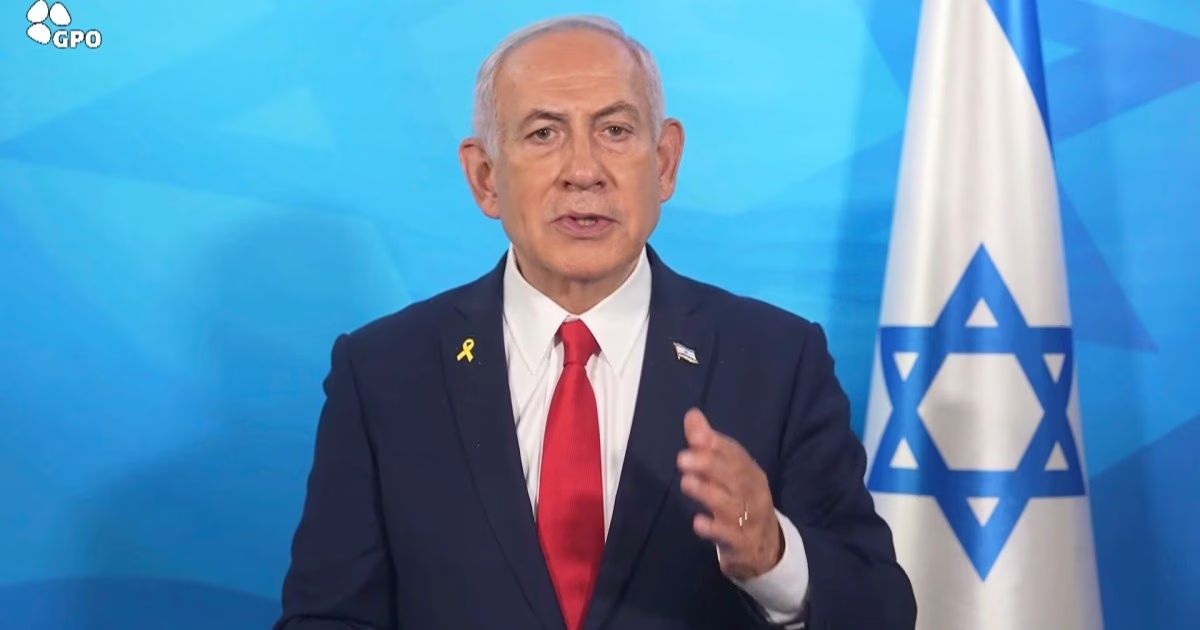Israeli Prime Minister warns future ceasefire talks to occur amidst conflict.
Israeli Prime Minister Benjamin Netanyahu stated that a series of air strikes, which killed hundreds of Palestinians in Gaza, is “only the beginning of more intense strikes” against Hamas.
In a televised speech, Netanyahu declared that future ceasefire negotiations with Hamas will “only happen under fire,” affirming Israel’s commitment to continue its military response with increased force.
He declared, “Hamas has already experienced our military strength in the last 24 hours, and you can be sure – this is just the start.
“We will persist in our fight to accomplish all war objectives, including the release of all hostages, the annihilation of Hamas, and guaranteeing Gaza no longer threatens Israel.”
Netanyahu made these strong statements after Israel’s deadly air strikes across Gaza shattered the fragile ceasefire agreement with Hamas, which had been in place since January 19.
The strikes led to at least 404 Palestinian deaths, many of whom were children, and left over 560 injured, according to Gaza’s Ministry of Health. Areas in Khan Younis, Rafah, Gaza City, and Deir el-Balah were prominently targeted.
Ceasefire talks, specifically regarding the second phase that would involve the release of remaining Hamas captives and establishing a permanent truce, have been at a standstill. Hamas rejects Israel’s proposed extension of the first phase until mid-April.
Israel has refused the Hamas offer to release an American-Israeli dual national and the remains of four deceased captives in exchange for starting second phase negotiations and ending the Israeli blockade from earlier this month.
Since the start of the ceasefire, Hamas has released more than three dozen captives in exchange for about 2,000 Palestinian prisoners, with the six-week-long first stage due to expire on March 1.
Before the Israeli assault, U.S. President Donald Trump’s Middle East envoy, Steve Witkoff, advocated for a “bridge” proposal that would extend the ceasefire beyond Ramadan and Passover. The plan involved Hamas releasing more captives in exchange for prisoners while negotiating for a permanent ceasefire.
Netanyahu blamed Hamas for the lack of progress in the talks, stating that while Israel accepted Witkoff’s proposal, Hamas categorically rejected it, leading to the Israeli decision to resume military action against Hamas.
Netanyahu also charged Hamas with responsibility for all unintended casualties among civilians in Gaza, urging the people of Gaza to move away from locations where Hamas is present to avoid harm.
“Every civilian casualty is a tragedy, and all such tragedies are attributable to Hamas,” Netanyahu asserted.
In a televised speech, Netanyahu declared that future ceasefire negotiations with Hamas will “only happen under fire,” affirming Israel’s commitment to continue its military response with increased force.
He declared, “Hamas has already experienced our military strength in the last 24 hours, and you can be sure – this is just the start.
“We will persist in our fight to accomplish all war objectives, including the release of all hostages, the annihilation of Hamas, and guaranteeing Gaza no longer threatens Israel.”
Netanyahu made these strong statements after Israel’s deadly air strikes across Gaza shattered the fragile ceasefire agreement with Hamas, which had been in place since January 19.
The strikes led to at least 404 Palestinian deaths, many of whom were children, and left over 560 injured, according to Gaza’s Ministry of Health. Areas in Khan Younis, Rafah, Gaza City, and Deir el-Balah were prominently targeted.
Ceasefire talks, specifically regarding the second phase that would involve the release of remaining Hamas captives and establishing a permanent truce, have been at a standstill. Hamas rejects Israel’s proposed extension of the first phase until mid-April.
Israel has refused the Hamas offer to release an American-Israeli dual national and the remains of four deceased captives in exchange for starting second phase negotiations and ending the Israeli blockade from earlier this month.
Since the start of the ceasefire, Hamas has released more than three dozen captives in exchange for about 2,000 Palestinian prisoners, with the six-week-long first stage due to expire on March 1.
Before the Israeli assault, U.S. President Donald Trump’s Middle East envoy, Steve Witkoff, advocated for a “bridge” proposal that would extend the ceasefire beyond Ramadan and Passover. The plan involved Hamas releasing more captives in exchange for prisoners while negotiating for a permanent ceasefire.
Netanyahu blamed Hamas for the lack of progress in the talks, stating that while Israel accepted Witkoff’s proposal, Hamas categorically rejected it, leading to the Israeli decision to resume military action against Hamas.
Netanyahu also charged Hamas with responsibility for all unintended casualties among civilians in Gaza, urging the people of Gaza to move away from locations where Hamas is present to avoid harm.
“Every civilian casualty is a tragedy, and all such tragedies are attributable to Hamas,” Netanyahu asserted.







